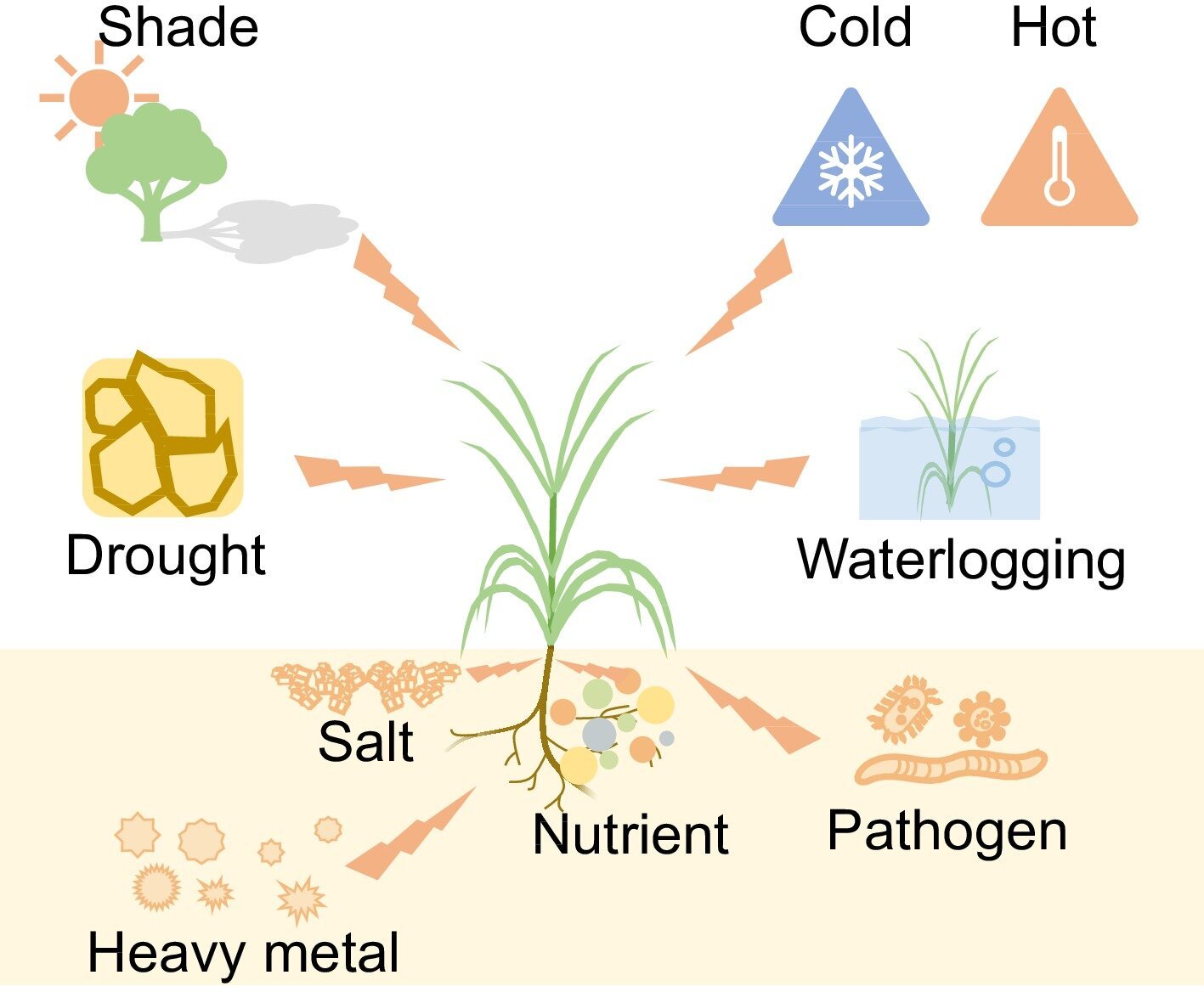
A research team has reviewed recent studies to highlight the significant progress in understanding the growth and stress response mechanisms in bermudagrass, a widely distributed and valuable grass species. A recent review reveals the genetic diversity and complex regulation pathways in bermudagrass.
The findings are crucial for breeding high-quality varieties and improving environmental adaptation. Future applications may involve whole genome resequencing and efficient genetic transformation systems to further explore and harness the genetic potential of bermudagrass for various uses.
Bermudagrass (Cynodon spp.) is a widely distributed perennial grass, valued for its deep-rooted, sod-forming characteristics and tolerance to environmental stressors, making it popular in turfgrass, slope protection, and forage species.
Current research focuses on understanding the adverse effects of environmental stresses on bermudagrass and its response mechanisms, driven by advances in research technology. However, challenges remain in fully elucidating these mechanisms.
The review, published in Grass Research, explores stress response growth regulation in C. dactylon.
This article comprehensively examines the environmental factors influencing bermudagrass growth. Researchers explore how abiotic stresses such as light, temperature, drought, submergence, salinity, and heavy metal exposure affect bermudagrass at both physiological and molecular levels.
In addition to abiotic stresses, biotic stresses also cause severe damage to bermudagrass. The review emphasizes the role of microbial communities in bermudagrass’s resistance to biotic stresses and underscores the need for further research on the effects of combined stresses, such as nitrogen reduction and salt stress.
Three research strategies for bermudagrass are outlined, including morphological and physiological methods, molecular markers and omics techniques, and the establishment of genetic transformation systems. And genes related to environmental stress responses and growth in bermudagrass, such as CdWRKY2, CdSPS1, and CdSPS2, are summarized.
Despite these advances, significant challenges remain in fully understanding the genetic and molecular mechanisms governing bermudagrass’s response to environmental stresses. The complexity of its genome and difficulties in developing efficient genetic transformation systems have hindered progress.
The review suggests that future research should focus on overcoming these challenges by refining genetic transformation techniques, identifying key genes and regulatory pathways involved in stress tolerance, and exploring the roles of genetic diversity and physiological integration within bermudagrass species.
According to the study’s senior researcher, Xuebing Yan, “The emphasis of this review is the investigation of growth and environmental adaptation regulation mechanisms in bermudagrass; only basic research, not management reports, are reviewed.”
In summary, this review details significant progress in understanding bermudagrass’s growth and stress response mechanisms, emphasizing recent advances in molecular biology. Despite these developments, challenges remain in deciphering its genetic complexity and improving genetic transformation systems.
Future research will focus on refining these systems, identifying key regulatory genes, and leveraging genetic diversity. Addressing these challenges will potentially enhance bermudagrass’s resilience, improving its application as high-quality turf and forage across diverse environments.
More information:
Jibiao Fan et al, Progress and prospects of bermudagrass research in the last decade, Grass Research (2024). DOI: 10.48130/grares-0024-0015
Provided by
Chinese Academy of Sciences
Citation:
Advances in bermudagrass research highlight genetic insights, potential for environmental resilience (2024, August 20)
retrieved 20 August 2024
from https://phys.org/news/2024-08-advances-bermudagrass-highlight-genetic-insights.html
This document is subject to copyright. Apart from any fair dealing for the purpose of private study or research, no
part may be reproduced without the written permission. The content is provided for information purposes only.
